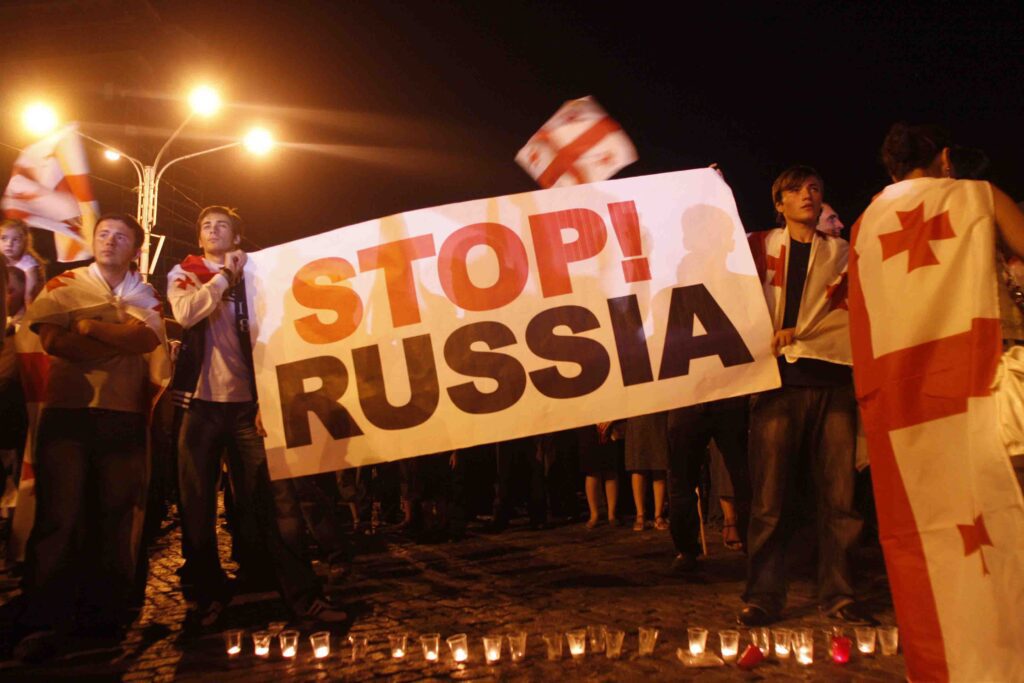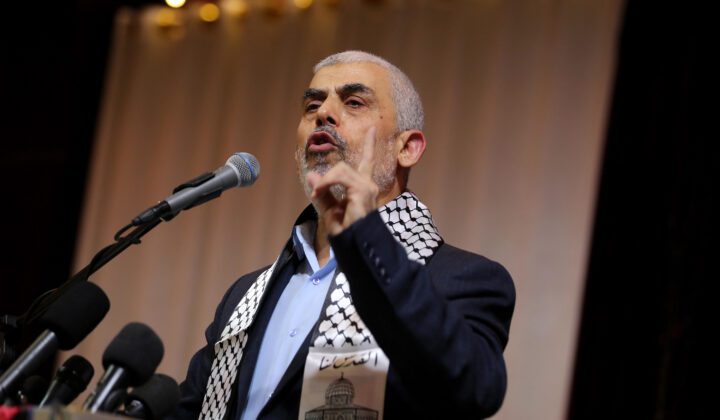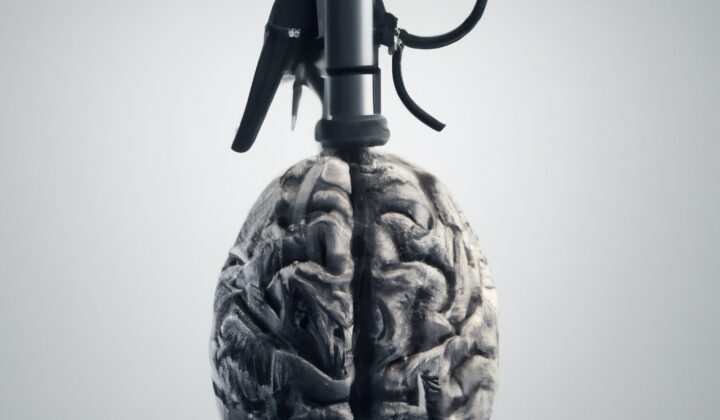Key news and views on democracy at home and abroad

As you know, The Topline is now proudly part of Renew Democracy Initiative (RDI), a community committed to defending the foundational principles of democracy so that we can all stand firm against threats from autocrats, extremists, and closed minds.
As RDI continues to grow, we’d love to learn more about what you’d like to see from us, so that we can create content that’s more tailored to you. We welcome you to fill out a brief survey to share your feedback. Everyone who participates will automatically be entered for a chance to win a virtual meeting with RDI Chairman and World Chess Champion Garry Kasparov!*
RDI is building a stronger pro-democracy and pro-freedom community, and we’re excited to have you with us. We look forward to hearing from you! —Melissa Amour, Managing Editor
*No purchase necessary to enter or win. Must be 18 years or older and a legal resident of the US. The virtual meeting will be a 30-minute zoom with Garry Kasparov at a mutually agreeable date and time. The sweepstakes begins on 5/29/2024 and ends on 6/14/2024. Subject to applicable federal, state, local, and municipal laws and regulations. Void where prohibited.

Georgia slides backwards to Russia
Georgian President Salome Zourabichvili vetoed an anti-media freedom law that eerily mirrored a Russian law and drew weeks of protests from critics. Unfortunately, the legislature overrode the veto, and the speaker of Georgia’s parliament signed the bill into law on Monday.
The measure requires media, nongovernmental organizations, and other nonprofit groups to register as “pursuing the interests of a foreign power” if they receive more than 20 percent of their funding from abroad.
Critics say it not only will curb media freedom, but also jeopardize the country’s chances of joining the European Union. More ominously, it shows the creeping influence of the Kremlin on the former Soviet republic.
We need look no further than our own chairman, Garry Kasparov, for evidence of what Georgians can expect to see next. Kasprarov was “arrested in absentia” by Russia in April for violating the Kremlin’s “foreign agent” law. Russian officials recently doubled down and said that there is “every reason” to prosecute Kasparov, who would face up to two years in prison.
China’s latest crackdown
China is still playing hard ball with its pro-democracy dissidents in what appears to be a 35 year throwback to Tiananmen Square. In Hong Kong, at least six people, including a former organizer of the territory’s annual Tiananmen Square vigil, were arrested for allegedly publishing “seditious” social media posts. Others were put under surveillance or temporarily removed from their homes by authorities.
Getting real about war
What is going on inside the White House? President Biden made some unusual foreign policy moves, starting with his announcement that the US would allow Ukraine to use American weapons to strike limited military targets inside of Russia—a dramatic shift in long-standing policy.
He also publicly aired a Gaza ceasefire proposal developed with Israel, without seeking agreement from Israeli Prime Minister Benjamin Netanyahu—an unusual step for the US to take with a close ally.
Why these disparate moves now? Surely his re-election campaign is on his mind. But the realities of war are certainly playing into his calculus as well.
“Wars are not porridge; there’s almost never a Goldilocks approach to getting it just right. Either you’re on the way to victory or on the way to defeat. Right now, the Biden administration is trying to restrain Israel and aid Ukraine while operating under both illusions.
It is asking them to fight their wars in roughly the same way that the United States has fought its own wars in recent decades — with limited means, a limited stomach for what it takes to win and an eye on the possibility of a negotiated settlement.” —Bret Stephens, columnist and RDI advisor
READ THIS TOO: Russian official floats new NATO Target for nuclear strike —Newsweek
Stay up-to-date and discover ways to participate as we fight to protect democracy.
ChatGPT: How do you influence an election?
Democracy is on the ballot in over 60 national elections this year, and state and rogue propagandists have a new tool for spreading disinformation: generative artificial intelligence.
ChatGPT-maker OpenAI has said it caught groups from Russia, China, Iran, and Israel using its technology to try to influence political discourse around the world.
READ THIS TOO: EU monitoring new measures by Meta to tackle election disinformation —Reuters
Violent threats are back, but states are ready
More than a third of election workers and volunteers have experienced threats, harassment, or abuse due to their jobs, according to a Brennan Center for Justice poll, leading to high turnover.
Despite the high number of threats, four secretaries of state from key battleground states say they’re prepared to execute a safe and secure presidential election.
“We welcome people to serve as election workers themselves so they can see up close just how secure our elections are and how many layers of security we have to ensure that only valid citizens are voting and that we count every valid and only count valid votes.” —Jocelyn Benson, Secretary of State of Michigan
READ THIS TOO: Voter outreach groups targeted by new laws in several GOP-led states are struggling to do their work —Associated Press
In Mexico, election workers faced more than threats
Mexican voters elected their new president last week, Claudia Sheinbaum, amidst 129 events of political violence that took aim at local, state, and federal election officials.
Aside from the violence—which has become routine in Mexico—the big story was that Sheinbaum, an engineering professor and member of current president Andrés Manuel López Obrador’s Morena movement, is the first female president of Mexico. But not everyone is thrilled about the historic landslide victory.
“Opposition parties say Andrés Manuel López Obrador has interpreted his mandate as a license to centralize power and weaken any institutions—the courts, the federal election board, the media—that stand in his way. They fear Sheinbaum, his protégée, will do the same.” —Mary Beth Sheridan in The Washington Post
Oh, and by the way…
For the first time, a former American president was convicted in criminal court. So what’s next for Donald Trump? There are a few possibilities. But the bigger question is, what does it mean for Americans?
So far, the country is split on whether Trump should end his campaign for the presidency (news flash: he won’t), so it’s up to American voters to choose whether they want a convicted felon to lead them.
“History has no predetermined destination, good or bad. The outcome is very much in our own hands. Unlike in the movies, superheroes aren’t coming to the rescue. We have to save ourselves.” —Max Boot, historian, foreign policy analyst, and RDI advisor

-
- Biden signs executive order limiting entry to US by migrants —USA Today
- In November, will economic stress trump the future of American democracy? —Ohio Capital Journal
- A year of elections in democracies around the world is revealing deep dissatisfaction among voters —Associated Press
- Indian voters reject Modi’s vision for one-party state in win for competitive democracy —CNN
- As the party of Mandela crumbles, South Africa faces a democratic reckoning —The Globe and Mail
- Why was Trump’s boast about Putin’s hostage ignored? —The Bulwark
- Three charged in Wisconsin fake elector plot —Wisconsin State Journal
- Political consultant indicted for AI robocalls made to New Hampshire voters —WMUR
- American federalism can push back against executive overreach —The UnPopulist
- Why the future of democracy could depend on your group chats —The Conversation

Hey Topline readers, you remember the drill. We want to hear your reactions to today’s stories. We’ll include some of your replies in this space in our next issue of The Topline. Click here to share your take, and don’t forget to include your name and state. We’re looking forward to hearing from you!





